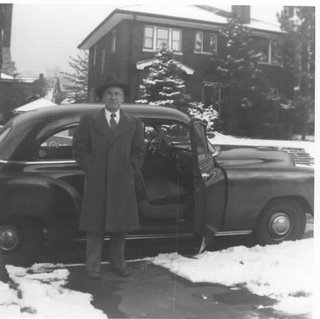Hanukkah is the most secularly accessible of Jewish holidays, I wrote last year. I liked this post so much I've decided to re-issue it this year.
To begin: Hanukkah was invented, some say, in a secular way – imitating the habits of the Hellenists in proclaiming a festival to celebrate a military victory, instead of getting the holiday directly from God. For another thing, it provides an alternative to secular Christmas: we have candles, they have trees. Even in the shtetl, it was kind of secular – a chance to gamble and give treats to the kids, maybe.
American Jews might see the Hanukkah story as a reinforcement of American values – religious freedom, standing up to tyranny, self-determination. We are free to ignore the elements of religious fanaticism in the actual Maccabee family as presented in the sources: they were rejected as part of the Jewish canon a long time ago anyway. And skeptics among us naturally can deal with the miracle of 8 days of oil in a variety of ways.
The Maccabees have always provided lots of ambiguity – something for anyone. Here are eight ways various people have seen Judah Maccabee as a hero – one for each night of Hanukkah.
1) Judah Maccabee, freedom fighter. Judah Maccabee’s commitment illustrates the importance of following one’s own conscience. As American Jews in the 20th century I think we learned this one in Jewish schools from Conservative to Reform to Secular.
2) Judah Maccabee, defender of the Jewish state. The Israelis have their own view of Judah the heroic soldier. In modern Israel, he not only stands for American-style freedom, but also for defending the Jewishness of the Jewish state:
“For modern Zionists, no group in Jewish history was better suited for the role of heroes than that band of irregulars whose guerilla war against the imperial rulers (in this case, Greek-speaking Hellenists based in Syria) ended in victory and national liberation – the Maccabees.” From “
A Zionist Hanukkah”
3) Judah Maccabee, military genius. This is another one that seems appealing to Israelis. It definitely comes right out of the original sources. For Jews of practically any persuasion, the idea that the small, underpowered Jewish fighters could defeat the well-equipped regular armies of one of the world’s biggest empires has evident appeal.
4) Judah Maccabee, religious leader struggling against defilers of pure Judaism. This one is a little anti-heroic for secular Jews like me. If you look closely at the actual motives of the Maccabee family, they wanted everyone to be a more orthodox Jew. The Temple needed purification after the battle – but there were also questions about how pure the prior practices had been, before the fight began. The Maccabees threw out the corrupted hereditary priests who had held power before the battle.
5) Judah Maccabee, martyr for his cause. Remember, he died before the oil miracle took place. Another not-too-secular aspect of our hero.
6) Judah Maccabee, anti-assimilationist and anti-Hellenizer. The Hasmoneans, another name for the Maccabee faction, did not like the introduction of Hellenistic political structure, art, literature, and outlook into their own culture. They especially and most famously opposed Jews who capitulated to adding pagan cult objects and practices into the Temple rituals. The Hasmoneans weren’t the most fanatic anti-Hellenizers (that would be the isolationist Qumram sects), but they were obviously very opposed to much assimilation with the tempting Hellenistic ways. Since secular Jews in modern western countries are mainly assimilationists, we do a little glossing over here. Anyway, no one has made us worship the emperor recently.
7) Judah Maccabee, warrior for God. In Medieval and Renaissance Christian art, many artists included him as a kind of generic Biblical military hero and symbol of Christian triumphalism -- the Old Testament prefiguring the New Testament. Not a popular view with Jews.

8) Judah Maccabee, hero of Handel’s Oratorio. Handel dedicated his magnificent treatment of the Book of Maccabees to a military victory by William Augustus, Duke of Cumberland, celebrating his triumph over the recent Jacobite rebellion. England at the time had a very small Jewish community, but they were active patrons of the arts, and quickly made this work a favorite of theirs, and commissioned more Handel works. Check Youtube to hear the beautiful aria:
“See, the conqu'ring hero comes!
Sound the trumpets, beat the drums.”











